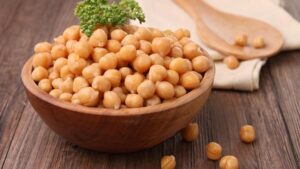The Benefits of Persimmons

This fruit typically harvested in late autumn and early winter, depending on the variety and region.
They are at their peak in flavor and availability from October through February.
The rich, sweet taste of persimmons complements the warmth and coziness of winter meals.
Their vibrant orange color adds a bright touch to winter dishes, which often feature heartier, earthy flavors.
During winter, when other fresh fruits may be less abundant, persimmons provide a rich source of vitamins A and C, helping to bolster the immune system during cold and flu season.
Persimmons are nutrient-dense fruits that offer a variety of health benefits. Here are the key advantages of including persimmons in your diet:
1. Rich in Nutrients
- Vitamins: High in vitamin A, which supports eye health, and vitamin C, which boosts the immune system and supports skin health.
- Minerals: Contains potassium, magnesium, and manganese, essential for muscle function, bone health, and enzyme activity.
- Fiber: A good source of dietary fiber, aiding digestion and promoting gut health.
2. Antioxidant Powerhouse
- Persimmons are loaded with antioxidants like beta-carotene, lutein, and zeaxanthin, which help combat oxidative stress, reduce inflammation, and protect against chronic diseases.
3. Supports Heart Health
- The fiber content helps lower LDL (bad) cholesterol levels.
- Rich in potassium, which can help manage blood pressure.
- Contains flavonoids and tannins that may support overall cardiovascular health.
4. Improves Digestive Health
- High fiber aids in regulating bowel movements.
- Contains tannins that may have anti-inflammatory properties, supporting gut health.
5. Promotes Healthy Vision
- High in vitamin A and compounds like lutein and zeaxanthin, which protect against age-related macular degeneration and improve overall eye health.
6. Boosts Immune Function
- High levels of vitamin C strengthen the immune system, aiding the body in fighting infections and reducing the severity of colds.
7. May Aid in Weight Management
- Low in calories but high in fiber, persimmons can help you feel full longer, potentially aiding in weight control.
8. Anti-Inflammatory Benefits
- Contains bioactive compounds like catechins and gallic acid, which have anti-inflammatory properties that may help reduce the risk of chronic diseases.
9. Skin Health
- The antioxidants, combined with vitamin C, promote collagen production and combat free radicals, keeping skin healthy and glowing.
10. Versatile and Delicious
- Persimmons are naturally sweet, making them a healthy alternative to sugary snacks. They can be eaten fresh, dried, or added to salads, smoothies, and baked goods.
Here is a delicious way to include persimmons in your winter recipes.

Ingredients:
– 2 ripe Fuyu persimmons (sliced)
– 4 cups mixed greens (arugula, spinach, or kale)
– ¼ cup crumbled goat cheese or feta
– ¼ cup pomegranate seeds
– ¼ cup roasted pecans or walnuts
– Balsamic vinaigrette
Instructions:
1. Arrange the mixed greens on a plate or in a bowl.
2. Top with persimmon slices, cheese, pomegranate seeds, and nuts.
3. Drizzle with balsamic vinaigrette and serve as a refreshing winter side dish.
Incorporating persimmons into your diet can be a delightful way to enhance your health and enjoy a unique, flavorful fruit.





